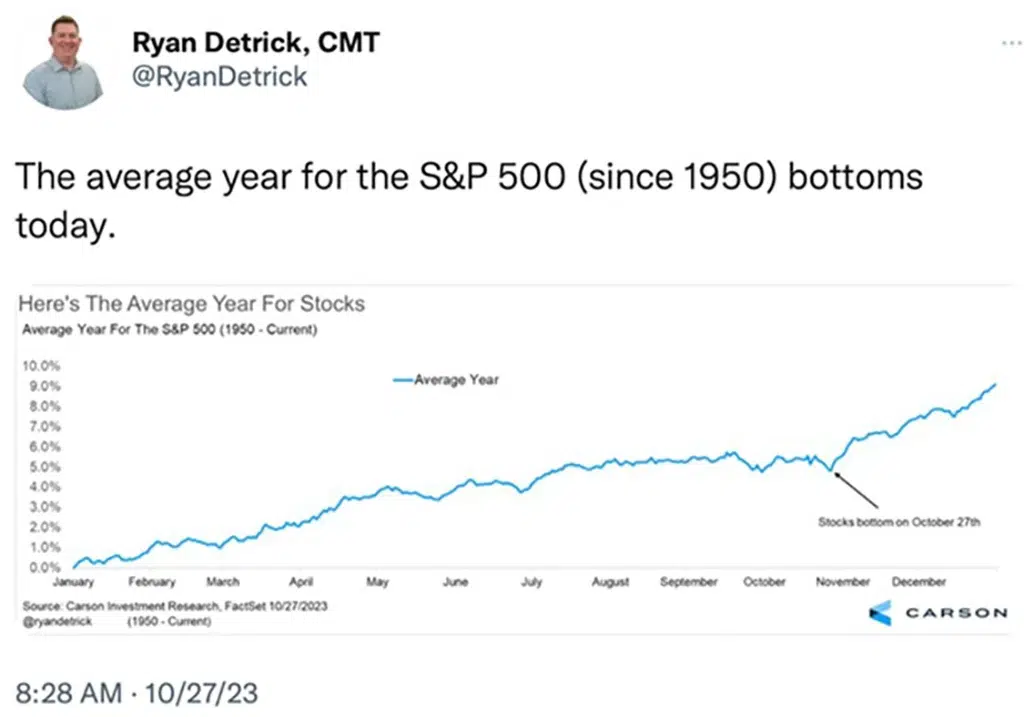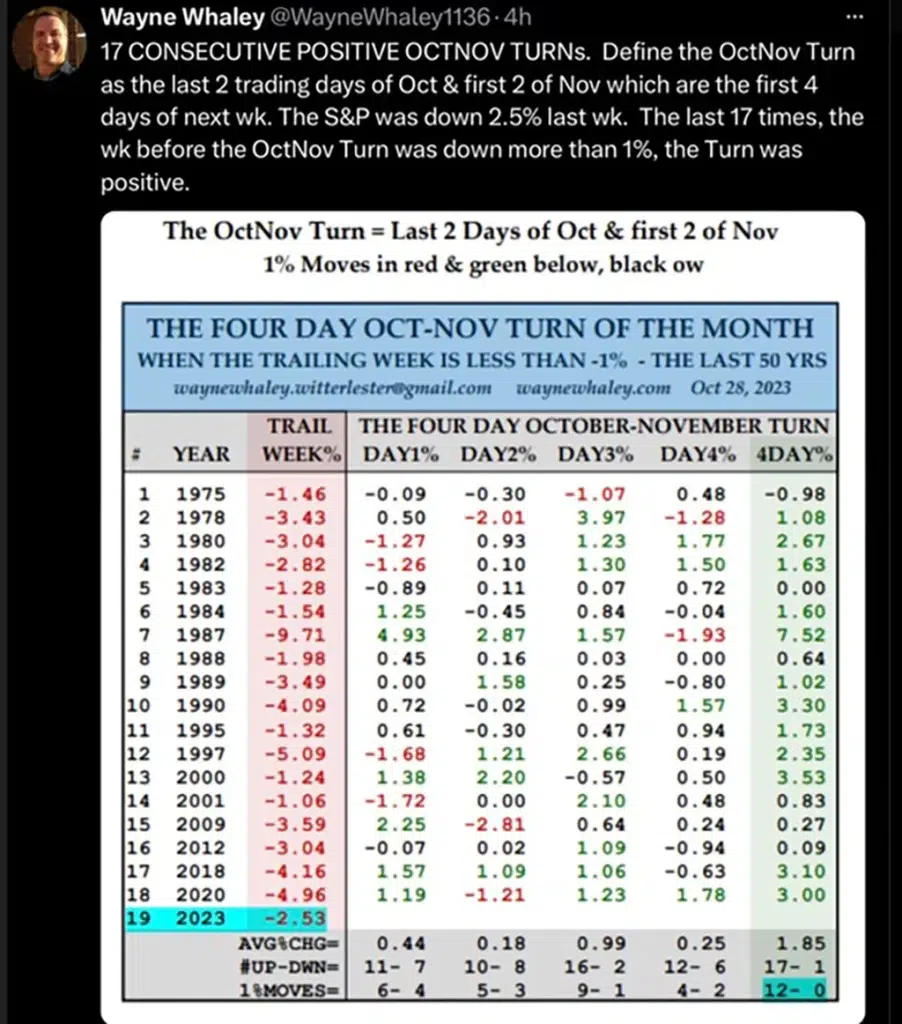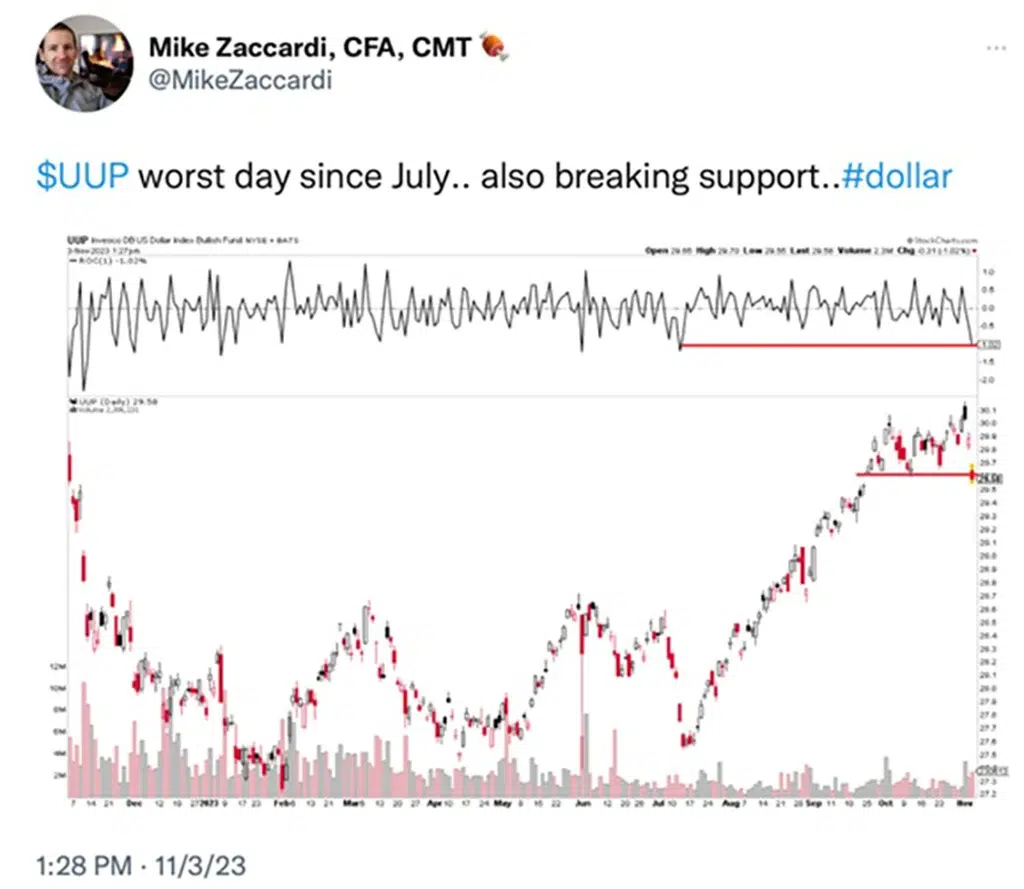November 08, 2023
Weekly Market Outlook
We are AGAIN sharing the two charts we put in the END of the Market Outlook from October 29. We also said we provide you with information that points to the best six months of investing that MAY lie ahead. (We also want you to know that we are a reliable source of pertinent investment information and will likely share information and charts that your Advisors may not share). See below:


As you are all too aware, the previous month of October had been frightful. Indeed, the markets had become oversold, and the normal seasonal cycles were oncoming. We luckily got a sharp turn. Yet, the question remains, “can this positive investment environment last”? Let’s dive into this week’s action.
Late in October, there was concern by many analysts that the “selloff” that had taken place the previous few weeks, coupled with major geopolitical risks and higher interest rates could get worse and the markets might fall off the proverbial “cliff.” Investors buckled in for more volatility at the end of October.
Unlike the media, our Market Outlook last week took a positive position that things could soon turn in November.
From the start of the opening bell last Monday (October 30) there was a positive bias in the market. Stocks gapped higher at the open as there had been no material rise in geopolitical tensions in the Middle East over the weekend with Israel’s ground invasion of Gaza ultimately being a less-significant military development than initially feared.
Europe (Spain and Germany) came out with lower inflation readings than previously expected, and that ramped up money flows around the World’s developed stock exchanges.
While we remain in “earnings season,” Monday morning had additional good earnings from the likes of McDonalds that helped create a positive investment sentiment. (McDonalds is a good proxy for retail sales and the state of the economy as evidenced by some economic analysts who use the “Big Mac” index). But all eyes were on Tuesday/Wednesday with the Fed meeting and a possible surprise rate hike.
Wednesday, the markets were all up over 1% as the Fed came out with its announcement that there would be no rate hike. They did use words to offset the need to raise, which included “tighter financial conditions” on households and businesses.
After Fed Chairman Powell’s press conference, most analysts believed that the Fed is successfully “threading the needle”. The Chairman reiterated the FOMC commitment to getting inflation down but maintaining a willingness to react to changing economic conditions.
The stock market continued its rally Thursday as the US Dollar declined. We have long held that the Dollar (DXY) would be one of the strongest headwinds against financial asset appreciation in the US. See the following chart of the ETF UUP’s (US Dollar) dramatic slide this week:

Friday was the JOBS report. Good news as employers added 150,000 jobs in October, half as many as they did a month before. Job growth was also revised downward 297,000 for September, a Bureau of Labor Statistics report showed Friday.
Meanwhile, wage growth slowed, and the unemployment rate rose to 3.9%. This counted as another piece of evidence that the Fed is done raising rates this year, with the futures market now indicating that the chance of a rate hike in December is below 5%, down from about 20% on Thursday. Average hourly earnings rose 0.2% from a month earlier, putting them 4.1% higher than a year earlier. That was the smallest year-over-year gain since June 2021, though unlike then, wages are now outpacing inflation.
Can Jerome Powell declare victory?
Click here to continue reading about:
- Will Interest rates continue to rise or begin to come down?
- What drove the stock market during the first week of November
- What stocks fueled the rally?
- How to determine if the market is about to turn?
- What is MarketGauge Pro?
- Is the Fed done raising rates or is the door partially open?
- What will the Fed’s next move be?
- The Big View bullets













